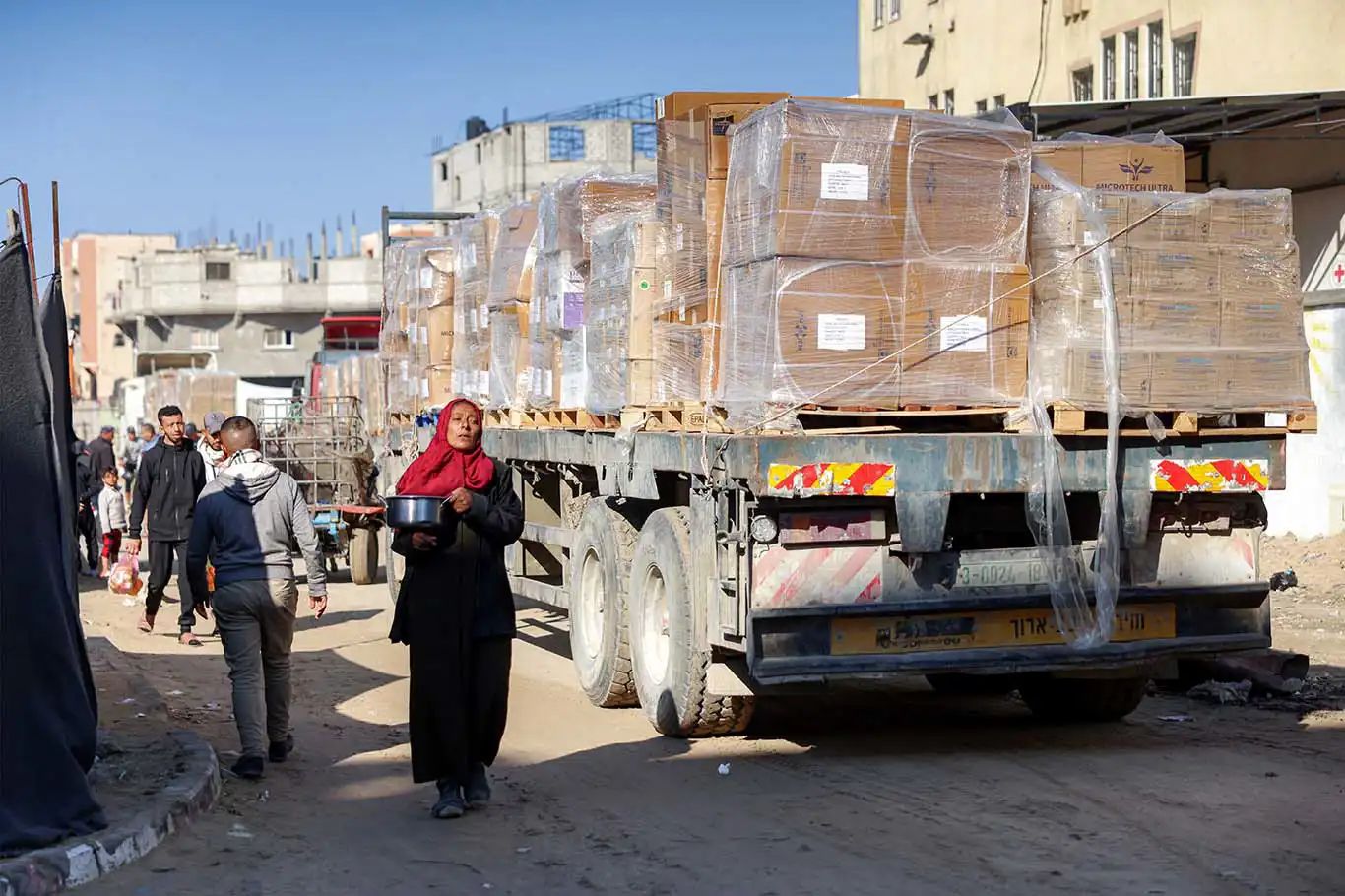UN official urges immediate global action to rebuild Gaza’s destroyed food system


A senior United Nations official has sounded the alarm over the catastrophic collapse of Gaza’s food system, urging the international community to take urgent, coordinated action to rebuild agricultural infrastructure destroyed by months of relentless Israeli bombardment and siege.
Stefanos Fotiou, Director in the UN Food and Agriculture Organization’s (FAO) Office of Sustainable Development Goals, said in an interview with Al Jazeera that Gaza’s agricultural and food sectors have been “decimated beyond precedent,” with between 78% and 91% of farmlands, greenhouses, and livestock facilities rendered inoperable by Israeli attacks.
“This is not just a food crisis — it is a systematic dismantling of Gaza’s ability to feed itself,” Fotiou warned, describing the situation as one of the worst humanitarian and environmental devastations in modern times.
According to FAO assessments, roughly 37% of the destroyed land could still be rehabilitated, offering a narrow window for urgent recovery. “If immediate international action and funding are mobilized, Gaza can begin to rebuild its food production capacity and regain a measure of self-reliance,” he said.
Fotiou stressed that restoring the flow of humanitarian aid, food, and fuel into Gaza must be an international priority. He called for the full reopening of all border crossings and the establishment of secure corridors that would allow uninterrupted humanitarian deliveries. “Aid convoys are being delayed, restricted, or denied entry — this cannot continue if we want to save lives,” he stated.
He also criticized the severe limitations placed on the types of aid allowed into Gaza. “What is reaching Gaza now does not meet the actual needs of the population,” Fotiou explained. “Most shipments consist of carbohydrates and processed food, while nutrient-rich items like meat, fish, and dairy remain blocked. This is worsening malnutrition and pushing children, pregnant women, and the sick into starvation.”
According to UN estimates, over 1.6 million Palestinians in Gaza are currently at risk of acute food insecurity, while aid deliveries continue to face Israeli restrictions. Local farmers, once the backbone of Gaza’s food independence, have lost their land, tools, and livestock to airstrikes and bulldozing.
Fotiou revealed that the FAO has launched a $75 million emergency recovery plan for Gaza, aimed at reviving local agriculture, rebuilding irrigation networks, and supporting farmers’ livelihoods. However, less than 10% of the required funding has been secured so far.
“The international community must urgently close this funding gap,” Fotiou urged. “Doubling available resources would not only help restore food production but also lay the groundwork for long-term sustainability — ensuring that Gaza’s people can once again live with dignity and self-sufficiency.”
FAO officials say that without immediate intervention, Gaza risks permanent agricultural collapse, forcing total dependency on external aid — a scenario that humanitarian agencies warn could deepen the humanitarian catastrophe already unfolding under Israel’s ongoing blockade.
As Gaza’s families continue to endure hunger, displacement, and destruction, Fotiou’s message was clear: “Rebuilding Gaza’s food system is not just a development issue — it is a moral imperative and a matter of human survival.” (ILKHA)
LEGAL WARNING: All rights of the published news, photos and videos are reserved by İlke Haber Ajansı Basın Yayın San. Trade A.Ş. Under no circumstances can all or part of the news, photos and videos be used without a written contract or subscription.
U.S. President Donald Trump is set to meet with Syrian President Ahmed al-Sharaa at the White House on Monday, marking a major diplomatic milestone in U.S.–Syrian relations, the White House announced Tuesday.
At least seven people have been confirmed dead and 11 others injured after a UPS cargo plane crashed shortly after takeoff from Louisville Muhammad Ali International Airport on Tuesday evening.
Former US Vice President Dick Cheney, one of the chief architects of the 2003 invasion of Iraq, has died at the age of 84 due to pneumonia and chronic heart disease, his family announced Monday evening.